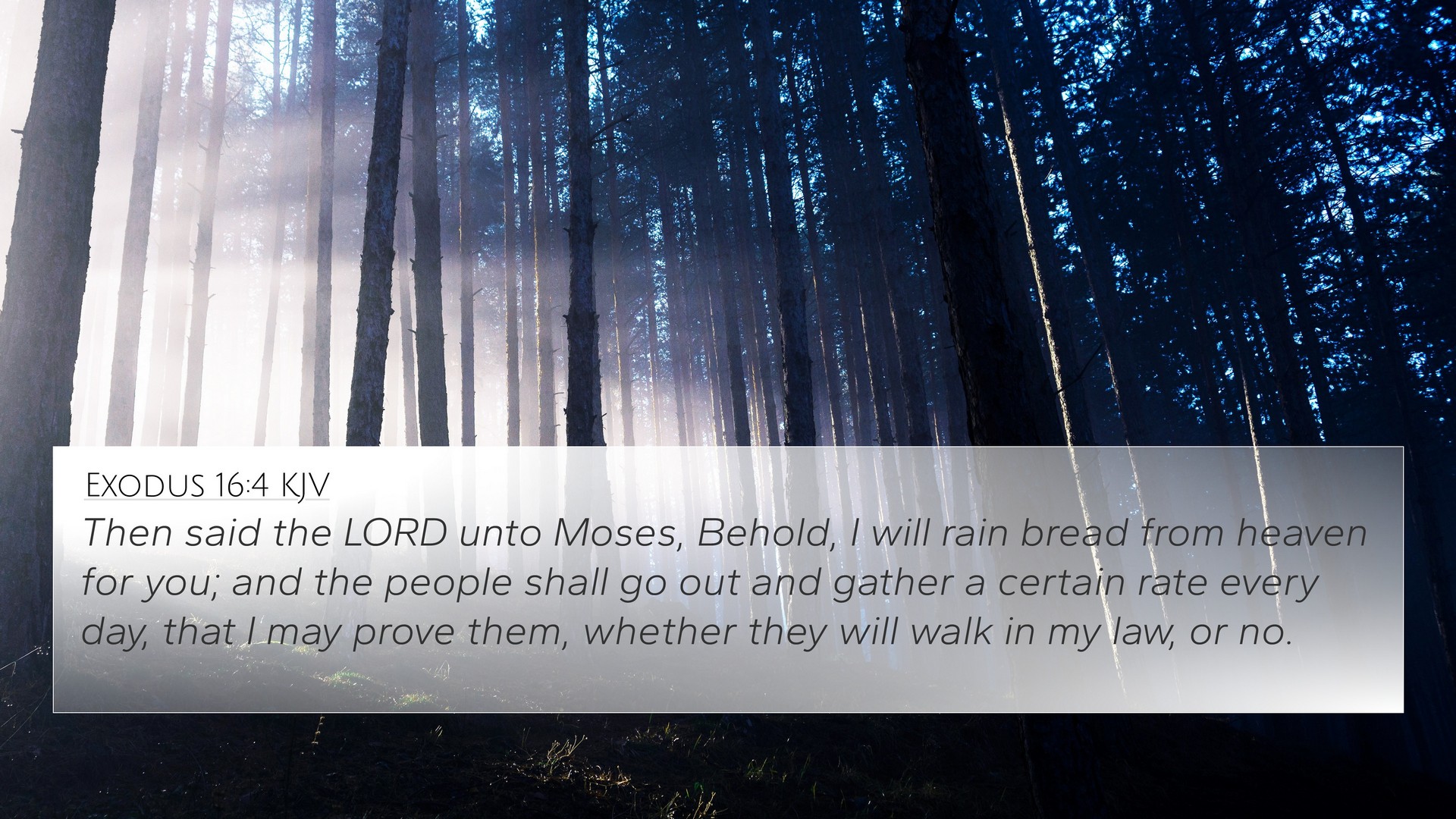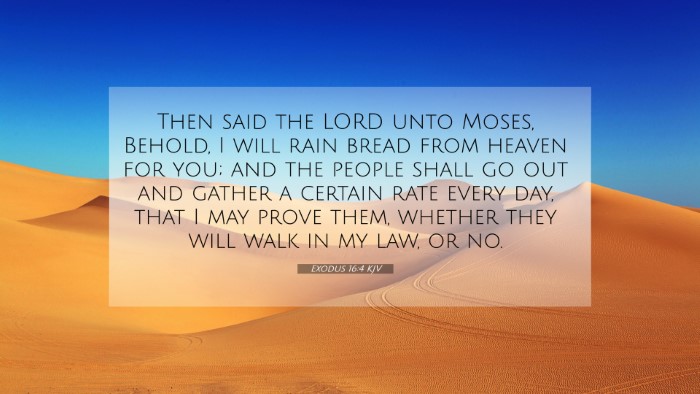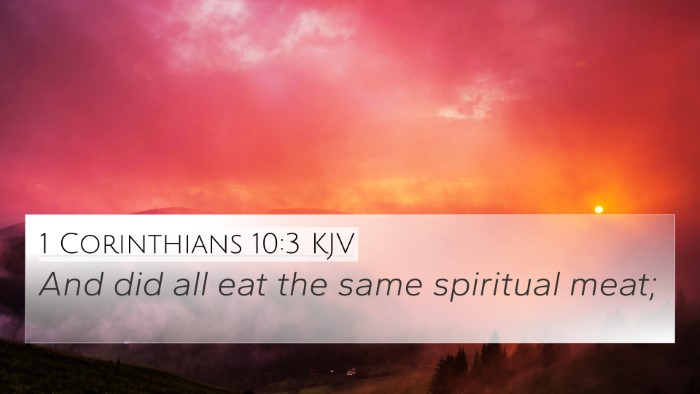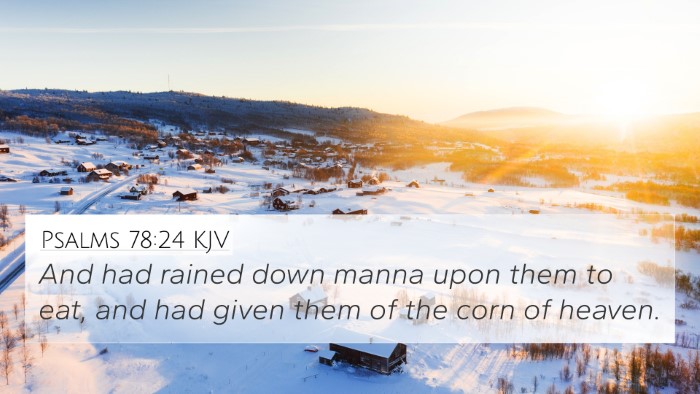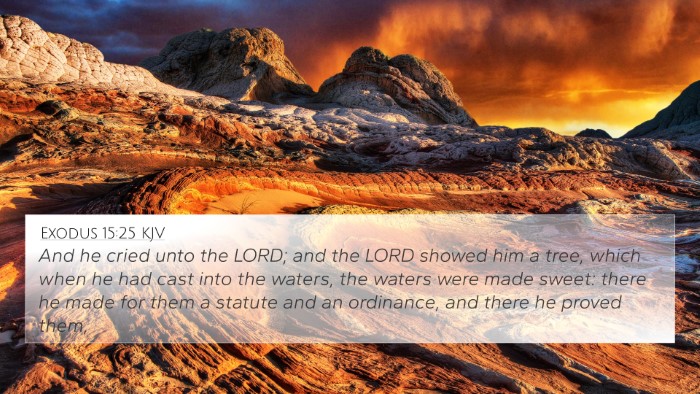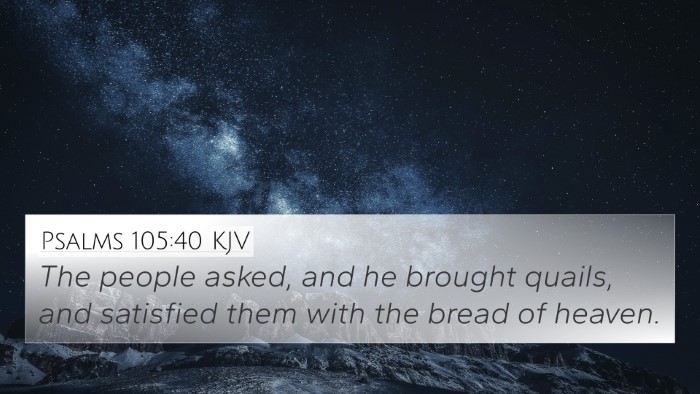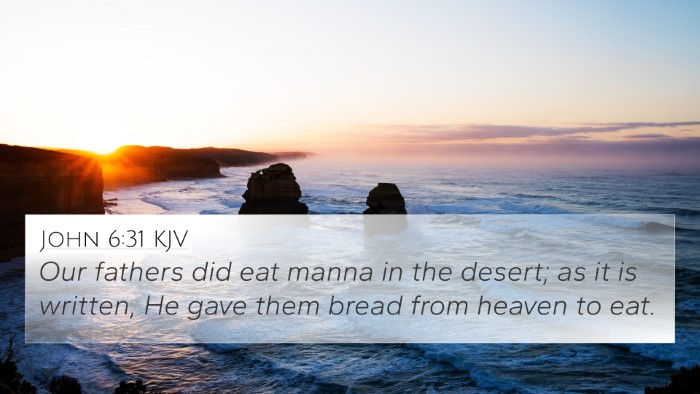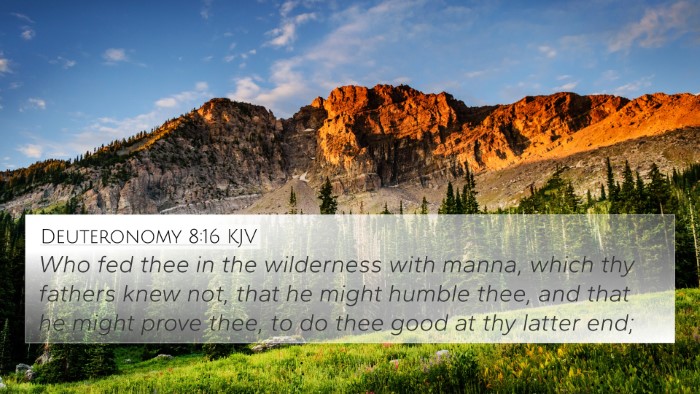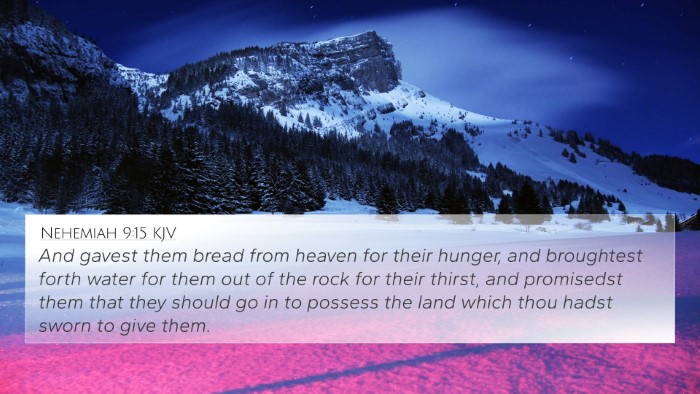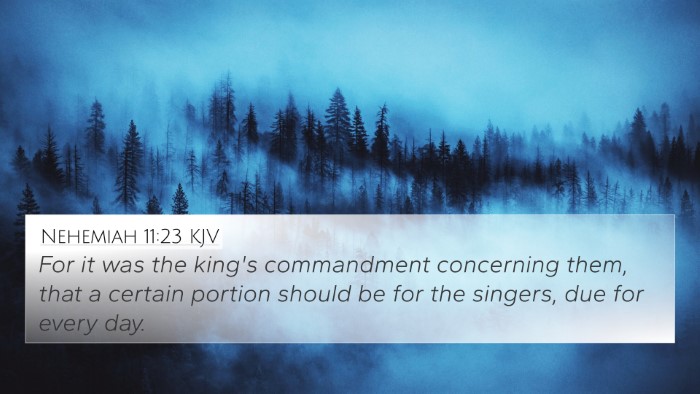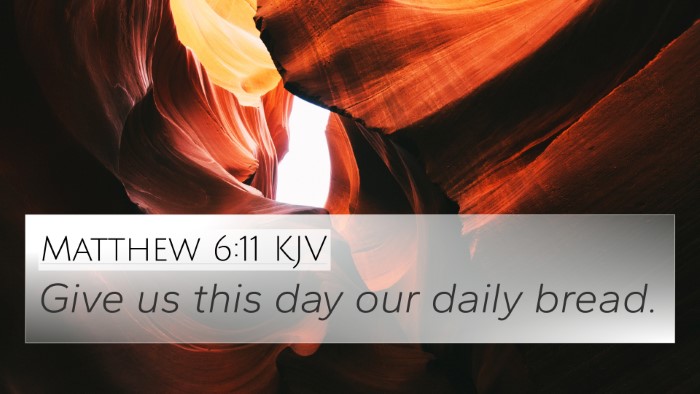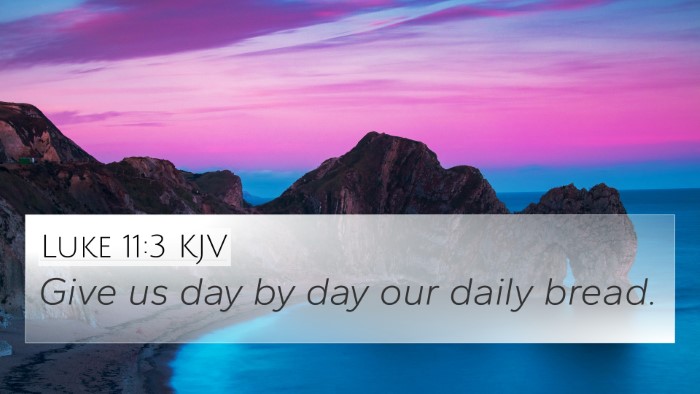Understanding Exodus 16:4
Exodus 16:4 states:
“Then the LORD said to Moses, ‘Behold, I will rain bread from heaven for you; and the people shall go out and gather a day's portion every day, that I may test them, whether they will walk in my law or not.’”
This verse marks a profound moment in the story of the Israelites as they wander in the wilderness. Its significance can be unpacked through various commentaries, offering a deeper understanding of God's provision, purpose, and the nature of divine testing.
Commentary Insights
Combining insights from Matthew Henry, Albert Barnes, and Adam Clarke provides a comprehensive interpretation of this verse.
-
Matthew Henry's Commentary:
Henry emphasizes the miraculous provision of manna, illustrating God's grace in caring for the needs of His people, despite their lack of faith and constant complaints. This act of providing bread from heaven not only satisfies their physical hunger but serves as a test of obedience and reliance on God.
-
Albert Barnes' Notes:
Barnes notes that the phrase "test them" implies a divine purpose behind the sustenance provided. God desired to see whether the Israelites would follow His commandments, thereby establishing a relationship based on obedience and trust. This daily gathering signifies a dependency on God for sustenance, both physically and spiritually.
-
Adam Clarke's Commentary:
Clarke provides additional insights into the significance of the bread from heaven. He stresses how this provision was not merely about physical nourishment but also about instilling faith and teaching the Israelites to rely on God daily. Clarke also refers to the spiritual implications of this bread as a type of Christ, the Bread of Life.
Thematic Connections
Exodus 16:4 connects to various themes throughout the Bible, notably God's provision, faith, and obedience. These themes are mirrored in numerous other biblical passages.
Cross-References to Exodus 16:4
- Psalms 78:24-25: “He rained down manna upon them to eat, and gave them of the corn of heaven.” This verse shows a direct parallel in the narrative of divine provision.
- John 6:31: “Our fathers ate the manna in the desert; as it is written, ‘He gave them bread from heaven to eat.’” Jesus refers back to manna when explaining His identity as the true bread from heaven.
- Matthew 4:4: “But he answered and said, ‘It is written, Man shall not live by bread alone, but by every word that proceeds from the mouth of God.’” This reinforces the spiritual aspect of reliance on God beyond physical needs.
- Deuteronomy 8:3: “And he humbled you and allowed you to hunger, and fed you with manna which you did not know nor did your fathers know, that He might make you know that man shall not live by bread alone.” This verse highlights the lesson of reliance on God for sustenance.
- James 1:12: “Blessed is the man who endures temptation; for when he has been approved, he will receive the crown of life which the Lord has promised to those who love Him.” This relates to the testing aspect of Exodus 16:4.
- Philippians 4:19: “And my God shall supply all your needs according to His riches in glory by Christ Jesus.” This verse echoes God's continuous provision for His people.
- Hebrews 11:26: “Esteeming the reproach of Christ greater riches than the treasures in Egypt; for he looked to the reward.” Here, the obedience of faith is touched upon, reflecting the intent behind God's testing.
Conclusion
Exodus 16:4, through the lens of various commentaries and cross-referenced verses, unveils the multi-faceted nature of God's interaction with humanity. It speaks of physical provision and challenges believers to trust in God and His commandments, shaping a deeper faith relationship.
This verse offers more than historical context; it encourages contemporary readers to look for divine sustenance in their spiritual journeys and underscores the importance of obedience in a daily walk with God.
Tools for Further Study
- Bible Concordance: Use this to find related themes and words.
- Bible Cross-Reference Guide: Explore connections between verses.
- Bible Chain References: Follow the themes and teachings through scripture.
- Cross-Reference Bible Study: Methodologies to study cross-referenced passages effectively.
